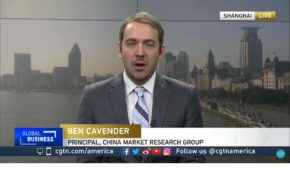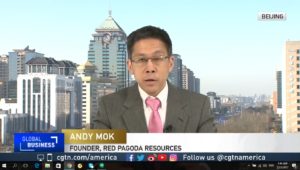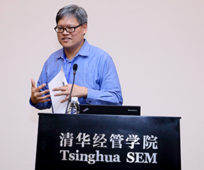 |
| Rupert Hoogewerf |
Chinese female entrepreneurs remain on top of the rich lists, says
Hurun chief researcher Rupert Hoogewerf at the publication of the 2018 top 50 “Hurun Women Entrepreneur List” of 2018
at the Pandaily. The gender gap with their male colleagues remains, he adds, with a difference of 30 percent between men and women.
Pandaily:
“China accounts for 60 percent of the world’s most successful female entrepreneurs, while Chinese women make up one-fifth of the world’s female population,” said Rupert Hoogewerf, chairman and chief researcher at Hurun Report.
Hoogewerf speculates that the combination of reform and opening-up, as well as entrepreneurships of Chinese women could be the reason.
The list evaluates the female entrepreneurs’ personal wealth, without the inclusion of family wealth or inheritance. The main sources of wealth of the women on this list are real estate and manufacturing.
Hoogewerf observes that the origins of wealth tend to be the same for both men and women. ”The big gap is in the IT-industry,” he adds.
First on the list is the vice-chairwoman of Country Garden Holdings, Yang Huiyan. Yang has topped the list for six consecutive years with a personal wealth of 150 billion yuan ($21.7 billion). The 37 year old’s wealth has shrunk by more than 10 billion yuan compared to last year but she still retains the title of being the richest woman in China.
Yang is followed by the chairwoman of Longfor Properties, Wu Yajun with a personal wealth of 58.5 billion yuan. Wu held the title of China’s richest woman in 2012 , only to be surpassed by Yang the following year. Third on the list is Chen Li Hua, chairwoman of Fu Wah International Group, with a personal wealth of 50.5 billion yuan.
The average wealth of the top 50 Chinese entrepreneurs fell by 7.8 percent from last year to 21.3 billion yuan, but this is still four times higher than a decade ago.
Gender gap exists even among the richest people. “The average wealth of the top 50 women entrepreneurs is 30 percent of the top 50 male entrepreneurs.” Hoogewerf says.
More at the Pandaily
.
Rupert Hoogewerf is a speaker at the China Speakers Bureau. Do you need him at your meeting or conference? Do get in touch or fill in our speakers' request form.
Are you looking for more stories by Rupert Hoogewerf? Do check out this list.
















